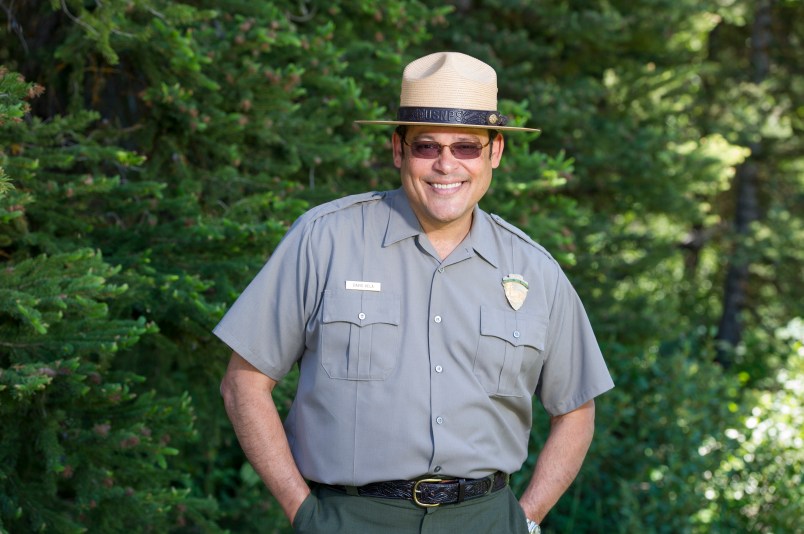National Park Service acting director David Vela on Wednesday discussed the complexities of dealing with racism associated with parks as the movement to remove Confederate monuments gains momentum nationwide.
During an interview that aired on ABC News Wednesday, Vela acknowledged the history of racism in parks and explained that the NPS is working on developing “a different approach” to combat it. Vela, who is the first Latino to lead the agency after being appointed by President Trump in 2017, said that part of the solution is to have an open discussion about racism and using park programming to reflect on “challenging times” in history.
“I think that as a person of color, I think that our national parks and what I’ve found, is opportunities to really reflect on the most difficult and challenging times in our nation’s history,” Vela said.
When asked about the growing movement to remove monuments linked to racism that emerged during protests in the wake of George Floyd’s death, Vela said that “there’s no question that the vast majority of the protests and demonstrations have been peaceful,” but that it’s “painful” to see the defacement of statues and memorials on park land.
However, Vela offered a nuanced take on the NPS’ position against removing statues or memorials paying tribute to Confederate figures, arguing that removal would risk removing “the stories that they contain.”
“I’ve had conversations even today about the position of the Park Service is that we’re not tearing down, removing any statue or memorial,” Vela said. “If we do that on park land, we then remove the stories that they contain. And if those stories are further sanitized in the history text, we may completely lose that narrative. We can’t.”
Vela added that the role of the Park Service is to foster discussion if a statue or memorial in a national park is offensive to visitors.
“Let’s talk about who put it up, why they put it up. The context, the lens that they used in putting it up, and then give you more information,” Vela said. “And then when you leave that visitor experience, you decide, visitor, what do you do with it?”
Vela said that he hopes visitors will “want to learn more and do further research” with this approach.
“And if that’s the case, we did our job,” Vela said. “But we’re not going to make that decision for you. But we’re going to give you the information that we have through our interpretive and educational processes.”
Watch Vela’s remarks below:
Exclusive: @NatlParkService acting dir David Vela tells @ABCNewsLive "We're not tearing down or removing any statue or memorial. If we do that on park land, we then remove the stories that they contain… we may completely lose that narrative." More: https://t.co/hykm15FApl pic.twitter.com/w9uBBGbkk7
— Devin Dwyer (@devindwyer) July 1, 2020










